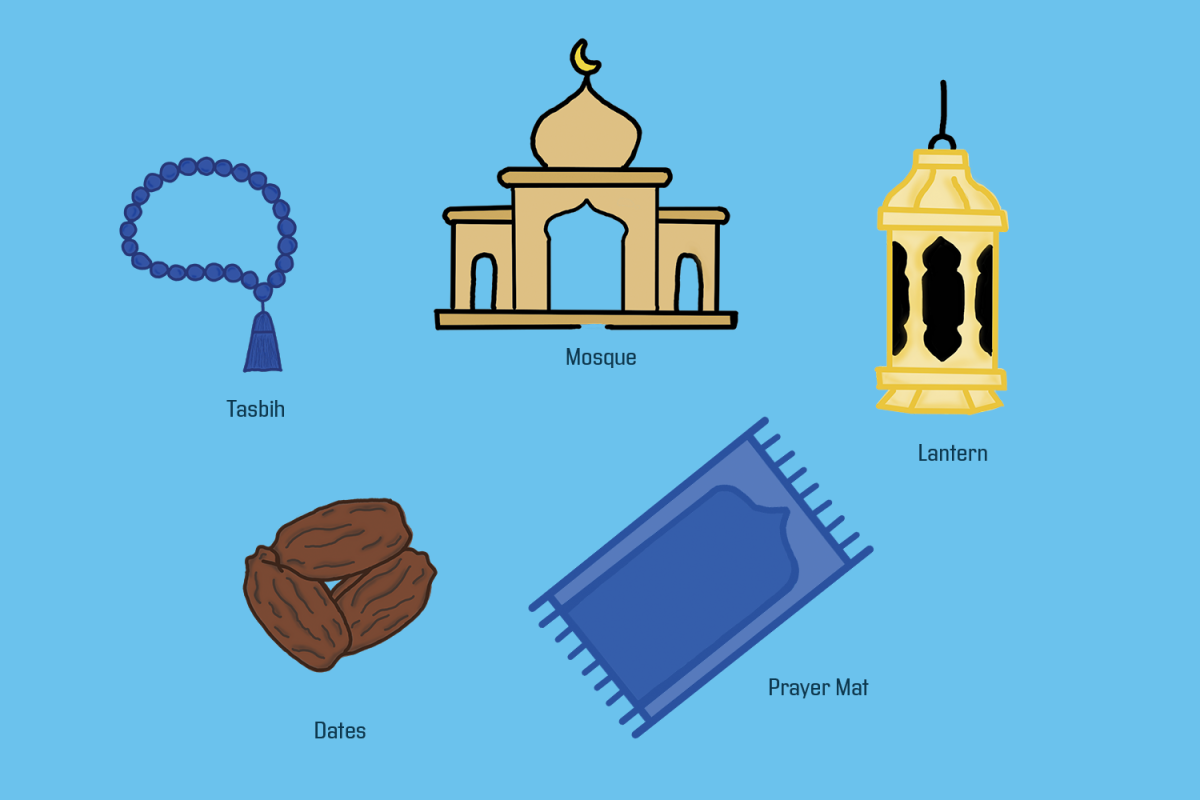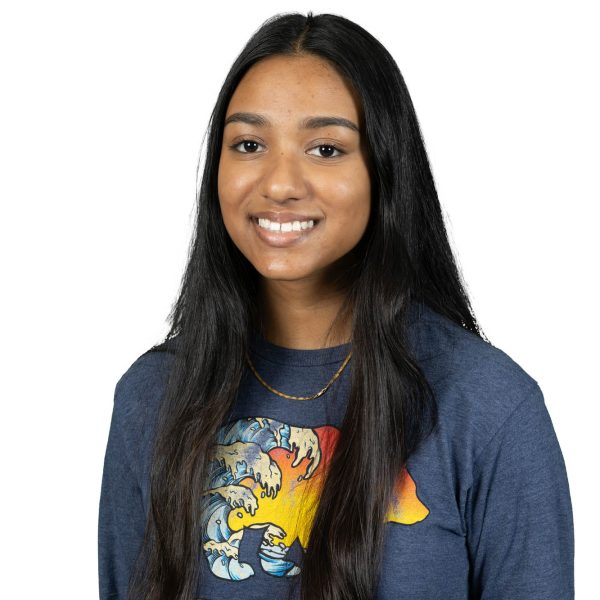The alarm goes off at a time where the rest of the neighborhood sleeps, but one house is wide awake. Inside that house, a family gathers at a table with breakfast as they indulge in food. A few minutes later, the call to prayer echoes around the house, marking the beginning of the fast. For the rest of the day until sunset, they will carry on with their usual routine, but without food or water.
From March 11 until April 9, Muslims around the world observe the Islamic month of Ramadan. During this holy month, Muslims fast and try to become the best versions of themselves by abstaining from bad habits and growing spiritually.
“Ramadan is a holy month where we fast from sunrise to sundown, and it’s supposed to be a holy month with no music and no eating,” sophomore Muhammad Aliyan said. “[We also] pray five times a day, read the Quran and give to charity.”
By fasting, they are taught self-discipline and are put into perspective of people in the world who might not be as fortunate.
“My favorite part of Ramadan is fasting because of the joy of waiting for food after Maghrib, [the prayer performed at sunset],” freshman Muhammad Fayyaz said. “It is a kind of reflection on other people who might have less food.”
A typical day for someone fasting might include waking up early in the morning before sunrise to have a meal called suhoor, praying the five mandatory prayers throughout the day while carrying on with their usual routine, and once the sun sets, breaking the fast with a meal called iftar.
“I’ll usually wake up at four to cook breakfast and begin my fast after praying Fajr and read the Quran for a little bit. Then brush up on any homework that I have to do before I go to school,” sophomore Kunan Anjum said. “After school, I come home, make up the prayers that I’ve missed [while at school] and continue with the rest of my fast until sunset.”
For the most part, the day goes on as usual. The only difference is that they can’t eat or drink during the day.
“Basically, it’s like any other day except that in the morning, I don’t eat breakfast. Since breakfast is the meal of the day that makes me the most energized, I feel a bit tired, but because I’m fasting, I have to keep going,” Fayyaz said. “At school, it’s pretty easy because you don’t need that much food. Once I go back home, I still can’t eat until sunset, but once the sun falls, then that’s when I break my fast.”
Different cultures practice varying customs throughout the month, ranging from the food they eat to the clothes they wear.
“When we can eat food after sunset, most of the time we drink a kind of [cultural] red juice that my mom makes that has a sweet strawberry flavor,” Fayyaz said.
In Texarkana, nightly iftars would be held at the mosque where people from varying cultures would bring food and the community would pray together. However, after the pandemic, the practice dwindled.
“I used to [go to the mosque for iftar] all the time, but ever since COVID, many of the Muslims in the community would rather pray at their home so now the mosque has been kind of like an abandoned building,” Fayyaz said. “Lately, I’ve been helping the mosque by adding security cameras to the building for my Eagle Scout project.”
When the month Ramadan concludes, Muslims celebrate with a holiday called Eid al-Fitr. The day starts with a short prayer. Afterwards, people dress in their best clothes and gather with friends and family.
“Some of the customs that my family indulges in is me and my dad will usually get matching kurtas,” Anjum said. “During Eid, whenever we go to the mosque, to celebrate we will show up matching with my sister and my mother.”
Overall, the month of Ramadan serves as a time of growth and dedication.
“To me this month is all about getting in good deeds, giving back to your community, giving charity, fasting, praying, reading your Quran and just really embracing your religion as a whole,” Anjum said. “It is also one of our five pillars for our path to worship.”



